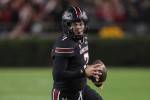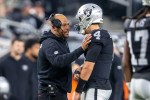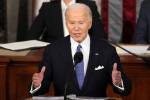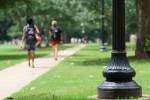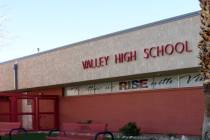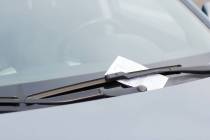Parents, educators, state officials wait to hear Nevada high court rulings on school choice
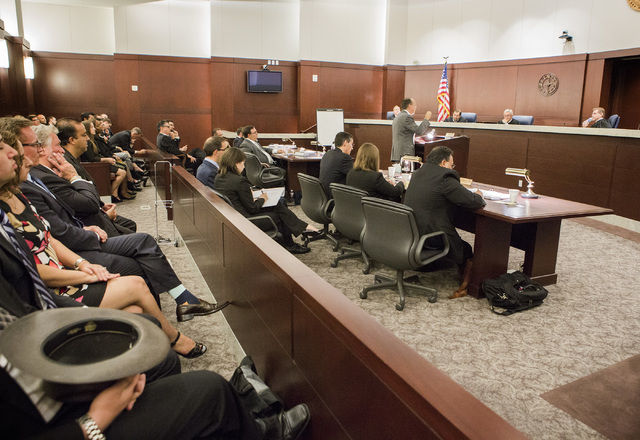
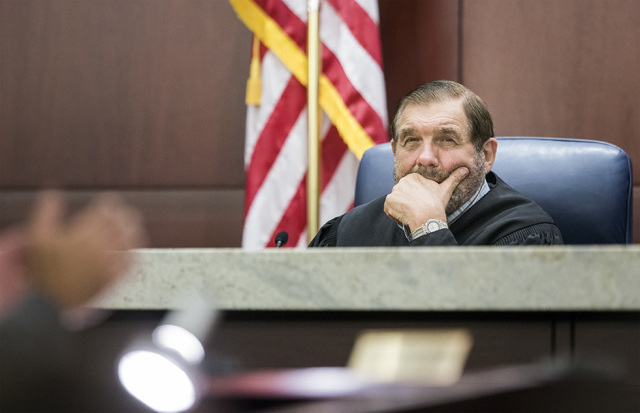
CARSON CITY — The only thing left to do is wait.
It could be a week, two weeks or months before the Nevada Supreme Court issues its rulings on two constitutional challenges to a school choice law passed by the 2015 Legislature and seen as the most ambitious school choice law in the nation.
Justices on Friday heard two hours of oral arguments on Senate Bill 302. The law, passed on party-line votes by the Republican-controlled Legislature and signed by Gov. Brian Sandoval, allows parents to set up education savings accounts, or ESAs, and claim a state portion of per-pupil funding to send their children to private or religious schools or pay for other educational programs.
Annual funding amounts to about $5,100 a year per child and is available to any child who has spent 100 days in public schools. There is no financial need threshold for eligibility, as there is in other states that have enacted more narrow school choice programs.
Around 8,000 applications have been received by the state treasurer’s office, which is charged with administering the program.
“Lawmakers in other states are looking at their decision to plan school choice in their own state,” state Treasurer Dan Schwartz said in a statement after Friday’s arguments concluded.
“Equally important, Nevada families need a speedy ruling so they may proceed with their academic and financial plans or the upcoming school year,” Schwartz said.
Justices gave no indication when they might rule.
Assemblywoman Olivia Diaz, D-North Las Vegas, said after court that public funding should stay with public schools.
“We need to adequately fund every child in our public system statewide before we sign off on any blank checks,” she said.
“The ESAs are essentially a blank check with zero accountability for those public dollars.”
SPECIAL SESSION?
The unknown of how the court might rule prompted at least one lawmaker, state Sen. Scott Hammond, to suggest a special session might be needed to “fix” any problems the court might identify if it strikes down the law.
The Nevada Legislature meets every two years and is set to convene for its next regular session February 2017.
“I would like to see something before that, if necessary,” said Hammond, a Las Vegas Republican who carried the bill through the 2015 session and watched the arguments at the Regional Justice Center in Las Vegas.
“We’re talking a lot of families who are waiting for this remedy.”
Assemblyman Stephen Silberkraus, R-Henderson, said Nevada schools have failed children for years.
“This is an opportunity to give them a real chance and give parents a choice to make sure that their kids get the best education possible,” he said.
But the prospect of a special session seems highly unlikely.
“That’s not going to happen,” said Eric Herzik, a Republican and political scientist at the University of Nevada, Reno.
Republicans could lose their majorities in one or both chambers after the November election, another unknown that has some Republican backers nervous. Democrats were united in their opposition to SB 302 last year. Even if a special session were called, it’s doubtful supporters could garner a two-thirds majority needed in the Senate and Assembly to fix deficiencies either through new spending or program legislation.
“The proponents of this are so wedded to this issue that even if they lose in court, they say, ‘Then we’re just going to fix it,’” Herzik said.
“They don’t have the votes. They don’t have the support to get a special session and then get a so-called fix.”
THE ISSUES
Justices asked pointed questions of lawyers on two fronts: whether pulling funding for ESAs from a budget account set aside for public education is constitutional, and if using money for tuition at religious schools violates a prohibition of using taxpayer money for sectarian purposes.
A negative ruling on either issue would render the law unconstitutional and bar implementation in its current form.
The law has been on hold since January when Carson City District Judge James Wilson issued an injunction blocking it from taking effect. Wilson’s ruling zeroed in on two sections of the Nevada Constitution, one of which was added to the constitution a decade ago and spearheaded by Jim Gibbons, a conservative former Nevada congressman and governor.
The Education First Initiative mandates the Legislature appropriate money “it deems to be sufficient” to fund the operation of public schools before passing any other state budgets.
Wilson ruled taking money from that account to pay for private tuition “reduces the amount deemed sufficient” by the Legislature to fund public schools and therefore violated the constitution.
Justice Michael Douglas appeared concerned by the lack of a legislative record when the school choice and funding bills were passed.
“There seems to be a lack of discussion as to the appropriation,” he said. “Where is the discussion that would allow additional draw-downs and still have sufficient funding” for public schools?
Paul Clement, a former U.S. solicitor general hired by the state to argue the cases, maintained lawmakers approved the school choice measure three days before the Distributive School Account, and therefore they were aware money for ESAs would be taken from that account. The DSA is the main public education funding bill.
That brought more questions from Justice James Hardesty.
“So what you’re suggesting is the DSA funded both the public schools and the ESA accounts?” he asked, adding that the education savings accounts “do not fund public schools.”
On the other issue, Clark County Judge Eric Johnson in May upheld the law, ruling it did not violate a prohibition of using public money for sectarian purposes because the funding is claimed by parents who decide how to use it.
But Richard Katskee, a lawyer with Americans United for Separation of Church and State, argued the funds remain under state control. Parents, he said, decide where it goes, but money is directed from the accounts to the schools they choose.
“It’s clear money here is going to end up going to religious schools,” he said.
“This is not the state giving a check to parents and saying now do with it as you please,” Katskee said.
Clement maintained there’s no constitutional problem because parents make the decision.
“There’s no unconstitutional state action here,” he said. “It’s the parents who are making the choice.”



